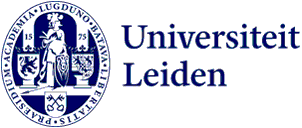
How do European Muslims see their future?
Professor of Islam and the West Maurits Berger wants to use citizen science to answer this question. On the futureofislam.eu website, he is inviting European Muslims to complete an anonymous survey about how they see their future and the role of Islam in this. He will present the first findings at the Euro Science Open Forum in Leiden.
What is the aim and design of your study ‘The Future of Islam in Europe?’
‘The aim is to find out what Muslims in Europe find important: how they see their future and the role of Islam in this. For example, when it comes to politics, the economy, health, morality and social life: what are their needs, opinions and ideas? The survey is on the futureofislam website. It will be a multi-year survey and I want to discuss the first results at ESOF. For the study, I’m going to work with Leiden researchers and Muslim students, among others, because we have so much knowledge here.’
‘Muslims with the same level of education can have very different ideas about their future and Islam’
Why have you chosen citizen science?
‘A group of young Muslims recently asked me to speak at a conference. They told me that they didn’t want to talk about sharia law for once because they’re really interested in topics such as climate change and sustainability and the potential role of a ‘green Islam’. That got me thinking. The topic of radicalisation has dominated the studies on Islam and is often initiated by non-Muslims when there are so many other topics that Muslims find relevant. So this study is very broad and as far as I’m concerned more optimistic and constructive. Because it’s about how we move forward together rather than about what’s wrong.’
What kind of response are you hoping for?
‘I hope that Muslims from many parts of Europe will want to participate and will come up with lots of different subjects. It would be nice if they were from different backgrounds. But I see that even Muslims with the same level of education think very differently about their future and Islam. I also hope this study will enable me to work with Muslims who are focusing on these topics, and with other European colleagues. The tide is starting to turn. And elsewhere in Europe, more researchers are focusing on the future of Islam, which is a good development.’
